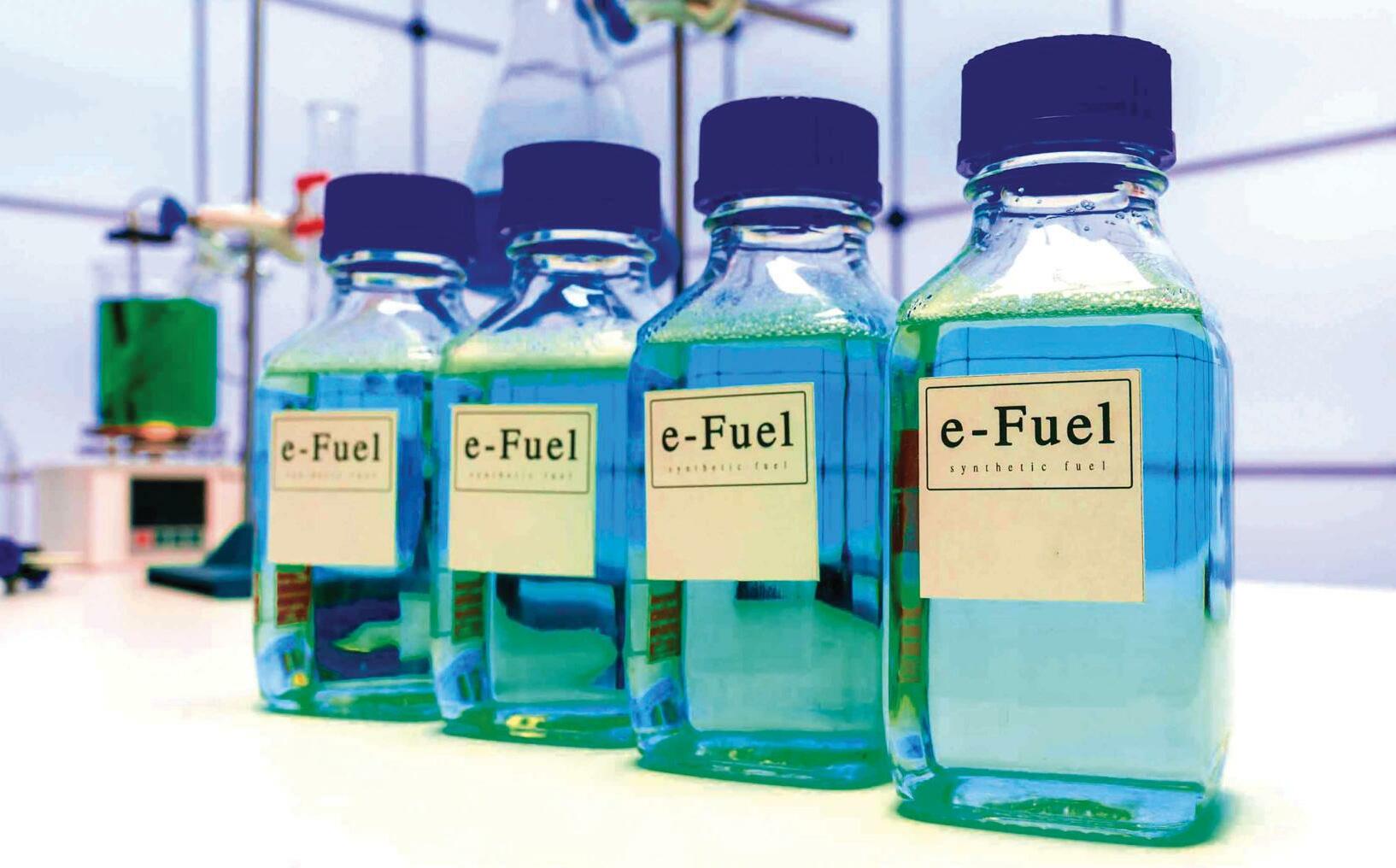Prøve GULL - Gratis
PRIMER: THE RISE OF E-FUELS
BBC Science Focus
|June 2023
Synthetic fuels could make transport more sustainable.... but at a price
-

The likes of Porsche and Ferrari are banking on synthetic fuel to ensure their cars are exempt from the EU ban on the sale of new combustion engine vehicles by 2035. Synthetic fuel - or electrofuel (e-fuel) - is a form of petrol made using hydrogen from water and carbon from air. The problem is the electricity that's required to extract these elements. Nevertheless, companies are already producing e-fuel on a small scale, including some in the UK. So will we see e-fuel in petrol stations soon and can we, and the planet, afford to use it? We spoke to Prof Patricia Thornley, Director of the Energy and Bioproducts Research Institute (EBRI) at Aston University, to find out.
WHAT ARE E-FUELS?
E-fuels are synthetic fuels. We create them from the building blocks of carbon dioxide (CO₂) and hydrogen. You can use electrolysis to produce hydrogen and you can pull the CO₂ out of the atmosphere by direct air capture. Combining these produces a hydrocarbon fuel. If you get different mixes of these molecules, then that provides you with different fuels for different purposes: lighter molecules are suitable for, say, an aircraft's ignition fuel, while you'll need heavier molecules for car or marine engines.
HOW ARE THEY DIFFERENT FROM BIOFUEL?
With biofuels (for example, ethanol and biodiesel) you're growing material that contains carbon, hydrogen and oxygen, and trying to convert it into a liquid or gas that you can use. In many ways, that pathway is the same with e-fuels but it's different in that biofuel needs land.
The main advantage of e-fuel is that you're not using plants but the disadvantage is that you're using more energy and this energy still has to come from somewhere.
HOW DOES E-FUEL HELP TO CUT DOWN CARBON EMISSIONS?
Denne historien er fra June 2023-utgaven av BBC Science Focus.
Abonner på Magzter GOLD for å få tilgang til tusenvis av kuraterte premiumhistorier og over 9000 magasiner og aviser.
Allerede abonnent? Logg på
FLERE HISTORIER FRA BBC Science Focus

BBC Science Focus
World's biggest cobweb is home to 100,000 spiders
Spiders don't normally create such large colonies, so there's no need to worry about finding one in your basement
1 min
February 2026

BBC Science Focus
A dementia vaccine could be gamechanging – and available already
Getting vaccinated against shingles could protect you from getting dementia, or slow the progression of the disease
1 mins
February 2026

BBC Science Focus
DATA IN SPACE
An unusual spacecraft reached orbit in November 2025, one that might herald the dawn of a new era.
7 mins
February 2026

BBC Science Focus
Climate change is already shrinking your salary
No matter where you live, a new study has found warmer temperatures are picking your pocket
4 mins
February 2026

BBC Science Focus
A MENTAL HEALTH GLOW-UP
Forget fine lines. Could Botox give you an unexpected mental health tweakment?
3 mins
February 2026
BBC Science Focus
Most people with high cholesterol gene don't know they have it
Standard testing struggles to detect the condition
1 mins
February 2026

BBC Science Focus
HOW CAN I BOOST MY IQ?
If you're serious about getting smarter, it's time to ditch the brain-training apps
4 mins
February 2026

BBC Science Focus
Humans are absolutely terrible at reading dogs' emotions
Think you can tell how our furry friends are feeling? Think again
1 mins
February 2026

BBC Science Focus
HOW TO TEACH AI RIGHT FROM WRONG
If we want to get good responses from AI, we may need to see what it does when we ask it to be evil
3 mins
February 2026

BBC Science Focus
What Australia's social media ban could really mean for under-16s
Many people think social media is bad for our kids. Australia is trying to prove it
5 mins
February 2026
Translate
Change font size

